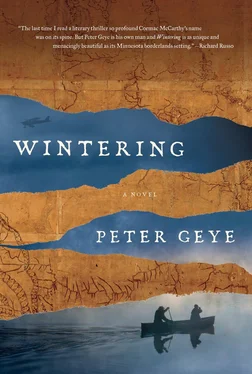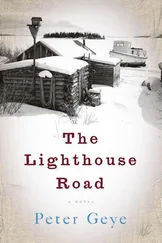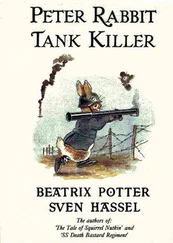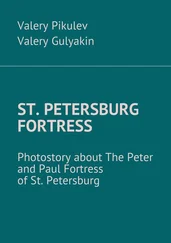He looked in the opposite direction through the trees, north toward his father and the chanced-upon shack. How far would they have gone if Gus hadn’t taken his toilet on the shore that morning? He knew the wilderness never ended in that direction and wondered what that said about his father. Maybe he was crackers. Maybe, Gus thought, he was trying to kill himself. Maybe the whole story of Charlie Aas, of his murdering his brother, of his plans to ruin this wilderness, maybe all that was pure fiction and his father had actually brought him out here to show him how barren the world was, how far away you could get. Maybe his father had already gone too far in his own mind, and so what difference did it make to him how far he went in the wilds? Maybe he was waiting now, not for Charlie, or winter, but for oblivion to come meet him.
Maybe they’d spend the rest of their lives waiting.
He looked back out over the distance. He studied the contours of the hills. He marked the two lakes he could see. Small lakes. He imagined skiing to them. Beyond them. He flexed his arms and shoulders, reached back to feel his hamstrings, bent at the waist and put his nose on his knees and felt the muscles stretch and burn. When he looked up again he saw that wilderness as if for the first time. It was the wilderness of the soul. His soul and all the world’s soul. It was untamable and ungovernable and unforgiving and it didn’t give a damn about him and his proud thoughts. It was not an idea. It was real and had to be lived in, not just visited. No, not lived in. Survived. He had to survive. So he took his compass out again and held it once in each direction and reckoned the world was just that simple if you let it be.
—
The next morning he left the shack with one of the Duluth packs strapped to his back. It held the tent and his sleeping sack and a canteen of coffee, a hatchet and saw, and the lantern. And, wrapped in a sweater, his father’s book of maps with a composition book and a pencil folded in the moose hide. While he packed it up the night before, his father asked what he was doing.
“I’ve been skiing south of here. Climbed a cliff yesterday and saw some territory that I want to get to, but I’ll need to camp overnight to get there. Just the night. Maybe two.”
“What territory?”
“There’s a big cut of the woods that burned. I want to see it up close.”
Harry smiled. “You remember that night you got our bear?”
“Yeah, and it won’t happen again.”
“You know that how?”
“I’ll be careful.”
“You’ll be careful.”
Gus lifted the Duluth pack, testing its weight. “You can come with,” he said.
“I’m partial to our digs here.”
“Suit yourself, then.”
Harry looked at him for a long moment, reconciling himself to the fact that in dragging Gus up here he’d forfeited the right to tell him what to do or not to do. Still, he was his father. “I’m not sure it’s a good idea, camping overnight. The weather could turn. What if you got lost?”
“I’ve gotten pretty familiar with that stretch of woods.”
Harry studied him again. “What is it you’re really looking for, bud?”
Gus might have answered that he merely wanted the adventure. But that wasn’t true. He might have said he wanted to face his fear, or make discoveries, or simply see as much of the borderlands as he could. But all of that was also untrue. He couldn’t have said any of it and believed himself, much less expected his father to. Decades later, he knew he was simply obeying his instincts by going off into the forest alone. As though he were merely another beast roaming those woods. “I’m not really looking for anything. I just want to go see,” he finally said.
Which was both true and an answer that satisfied his father. Enough that when Gus left with the Duluth pack in the morning Harry only patted him on the shoulder and said, “Be careful, eh? I’ll see you tomorrow.”
By the time he made camp nine hours later — all the daylight spent and a new and bitter cold bearing down — Gus was afraid again. Not of the wilderness or the cold, but because his father had let him go.
He’d stopped twice to sketch the shape of the lakes and mark the entrances into the clearings. He’d climbed the same ridgeline that he had the day before, and blocked out the landscape on a separate sheet of paper. He used the field glasses to scan the distant hills and the compass to assure himself that he was looking either south or east.
Once he got nestled in the tent, the flap pulled back and a fire at its mouth, his belly full and his coffee warm, he had figured out what he was doing out here. He redrew his earlier sketches in the back of the composition book, guessing at distances traveled and seen, detailing any dramatic rises, and any other features of the terrain that warranted attention.
—
“The next morning I skied what must have been another fifteen miles. Always, always south or east. If I came on some impediment — an impassable stretch of woods, a hill too daunting, whatever — I’d backtrack until I found a route that kept me on course. South or east. No exceptions.”
I had flipped through most of the composition book and could well imagine him sitting alone as a boy in the middle of the wilderness, charting his path home. Of all the things I knew about that season and about Gus, this was the most impressive. Even more so than what was to come.
“Anyone who’s ever been lost understands the first rule of the cartographer,” he said, motioning to the waitress to refill his coffee mug. “I understood it instinctively, and since I gave no credence to my father’s maps — which, I might add, I carried with me and consulted often — I was free to follow that first rule without any hesitation. It was a simple undertaking. I had to figure out how to get home when the time came. With no tools at my disposal other than the binoculars and the compass, the task was as simple as could be. Get from here to there, from A to B. From the shack to the Burnt Wood River.”
The waitress topped off his coffee and he continued. “I thought often those days of how uninterested I’d been in our route. How trusting I’d been of my father and his plan and his book of maps. I can’t say I felt foolish, though maybe I should have, but I was definitely aware that if we were ever going to get out of there, it would be because I’d figured out how to do it.
“Three nights I was gone that first time. Three nights and maybe twenty-five or thirty miles. It occurred to me more than once that we’d only just settled in and here I was looking to get out. At the time I wasn’t proud of this. I saw it as a deficiency in my character. But it was merely my nature. I came by it through no choice of my own, just as my father had no choice in his. To get rid of it you’d have to go back a thousand years and across all the miles of the Atlantic Ocean, through all our ancestors and all the qualities of the Northern European people in general.” He smiled. “You know something about this particular quality of our people, Berit Lovig. You know it just as well as I do.”
“You’re talking about more than getting to church on time.”
He smiled again, more broadly, and nodded. “I haven’t been to church twelve times in my life. What I’m talking about is who I am, and how not even those borderlands could rid me of that.”
“Did those borderlands take your father’s true nature away from him?”
He thought for a moment. “I suppose my father thought he might feel better up there. Better as in happier, or more capable, or at least more himself.” He thought a bit more. “Or maybe he thought he could escape his nature. Just forget who he was. And maybe he did. But any thoughts like this he might’ve had were afterthoughts. Whatever he thought he’d find there he knew would come with Charlie and all that he’d bring with him.”
Читать дальше












